#character examination
Text
Shidou Ryusei: as free as a bird
Shidou is uncomfortable, imperfect. He's vulgar, he's gross, he's blatantly cruel, and he's incapable of compromise. He's hyper-excitable, constantly ready to fight and even looking forward to that brawl. He switches between moods like a kaleidoscope, and what falls out in that kaleidoscope is unpredictable.
Shidou has absolutely no understanding of morality.
This is especially evident in his encounter with Kunigami.
He has absolutely no understanding of the concept of protecting someone simply for no gain. Trying to protect someone heroically, purely because of an understanding that it's wrong, is ridiculous to Shidou. Shidou has only "his" and "others", and that "his" so far includes only Sae, as shown in the episode where he tries to turn Sendou's face into mush.

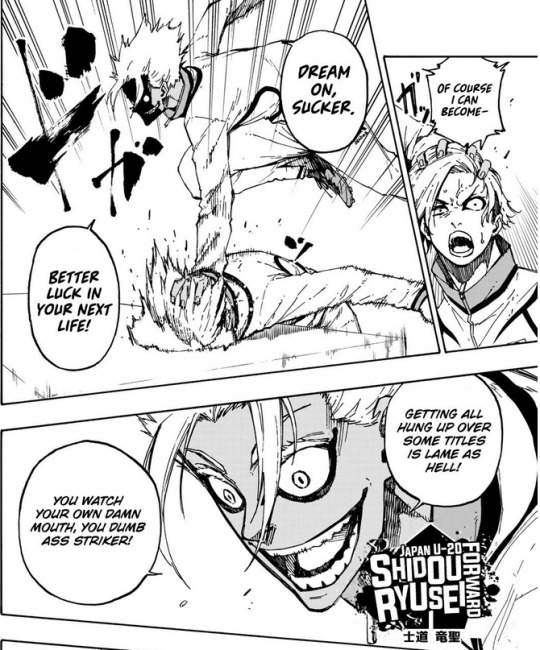
Nor does he understand the moralization that it is wrong to hit people. He just doesn't get it, and it's probably ridiculous for him to even think about it, because at the deepest level he has an attitude to respond to any hint of a threat with a fight.
Most likely Shidou grew up in an environment where brute force decided everything. That's why he's so hyperexcitable.
Shidou is in a constant state of tension, waiting for even the slightest hint of a threat, which he is happy to crush immediately. He's constantly ready to strike because he's used to constantly feeling a threat - one that he had to respond to with violence because he wouldn't have survived otherwise. His "fight" response, out of a combination of ancient instincts called "fight-flight-freeze," is always switched to the max.
We all know that the attack is the best form of defense, and Shidou follows this motto with his entire being. "Beat your own so that others will fear you" is about him.
Shidou doesn't mention his family at all in his Blue Lock profile like other players do. Remember how he talks about Santa in the same form - "I can buy something on my own" sounds very childish and unhappy. When you're trying to prove to yourself that you don't need it at all - because if you need it, you won't get it anyway.
Beyond that, even leaving aside his family and theoretical home environment, we know for a fact that Shidou didn't play for any football team before Blue Lock.
He was a loner, and therefore the only space where he could practice was the street.
And street football is insanely, inhumanly violent.
And it makes sense that this similar environment, both at home and in the game, formed the core of Shidou's personality that we see in the manga. The core of personality, which is based on the desire to survive, and not just survive, but to show everyone around him that despite everything he has gnawed out a life for himself with his teeth. A life in which cruelty is the law.
A life where he exists.
Shidou is probably one of the most evident Blue Lock players, for whom football is not only inextricably linked to life - it is life. And Shidou is absolutely explicit about this both in the interview and in the manga.
For Shidou, football and life are one and the same.
The same thing that Aiku says: Shidou is incapable of separating the field and life. They're inseparable in his world in general; they're one and the same.
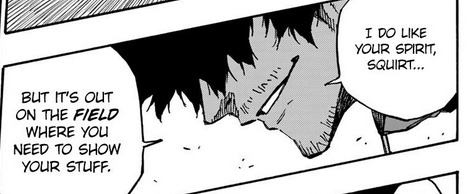
It is only logical that Shidou transfers the laws of his life to football as well; and ends up playing football the same way he plays life - a football of the "survival" kind. Where it is his biological need (I'm sorry), his only aspiration, the violence that breaks everything in its path. Where the way to "survive the game", just as in life, is to leave your mark, to somehow prove your existence in people's lives, to be remembered by them and imprinted in their memories.
And pay attention to the way Shidou lives: not according to the rules, uncomfortable and bright, believing that it is better to burn to the death than to lie in a corner as a gray shadow, but alive.
There are no rules in Shidou's football; therefore, there are no rules in Shidou's life.
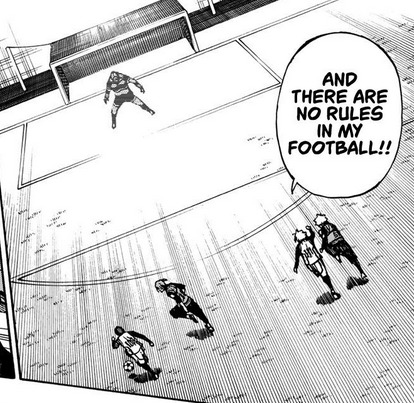
And that's why Shidou despises heroes and "good guys"; because only naive idiots who don't understand real life, the one where your survival is all that matters. That's why he mocks Kunigami's principles so much: because to him, a child for whom his whole life has been one big attempt to gnaw his teeth out to survive, such principles are irrelevant.
Because there are no heroes in Shidou's world, and even if there were, they've long since broken.
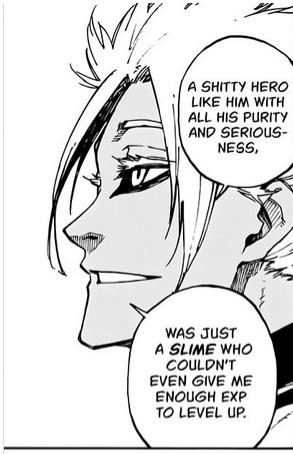

And there are no restrictions in Shidou's life either. He lives a violent life, and it makes sense that he lives by the same principles in Blue Lock, not hesitating to threaten Rin with the end of his career or Igaguri with murder.


He's not violent because he takes some special pleasure in bullying Igaguri: he's violent because that's just who he is. He doesn't have a "harming others is not okay" attitude. It's instinct - as seen especially in his episodes of fighting with Rin. He doesn't care at all about causing him long-term harm or ruining his career - on the contrary, he enjoys it in the moment.

And this is especially evident in his relationship with Isagi; while Shidou had nearly smashed his head in the day before, on the field he already openly admires him and is quite friendly. Shidou doesn't give violence any particular importance - you don't give any importance to brushing your teeth or throwing out the rubbish in the morning, do you?
For Shidou, it's just insignificant, because violence is the organic basis of his life, its law and right.
Today he's trying to kill Isagi, and tomorrow it's Isagi-chan.
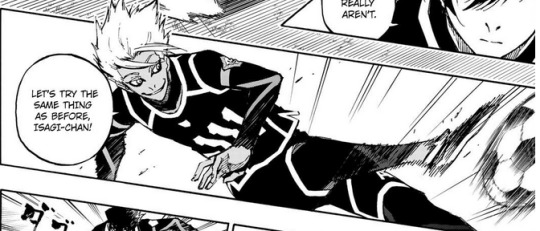
Because Shidou has no social competence - he had no parents to bring him into society and set some morals.
And his desires are pretty simple and even primitive. When he learns of his potential salary, his first thought is how much he can eat on it. All he basically wants, almost to the point of obsession, is to induce vivid emotions, explosion, adrenaline - something Shidou is addicted to, living in constant danger and something that allows him to feel alive and existent.
You know who that sounds like? Denji. A main character from Shidou's most favourite manga.
They both had no guides to society. They're both unfortunate kids who were deprived of absolutely everything when they were young. Who are so vulgar and repulsive not because there's anything wrong with them and they act so deliberately and meanly - but because they just don't know any other life. They just don't understand what it's like to live differently. They both live on base instincts.
And they both try to greedily claim as much as they can from the life around them - the food, the people, the sensations.
Because they had nothing before.
Back to Shidou and his football.
The most amazing thing about Shidou is the way he treats his opponents (omitting attempts to injure them). Shidou, even when losing, finds time to admire them - to admire those who took the ball away from him or stole a goal. He's really just having a good time - while for Rin, football is something to be taken completely seriously, for Karasu it's a need to pre-analyse opponents, and for Snuffy it's work, Shidou is just having fun.
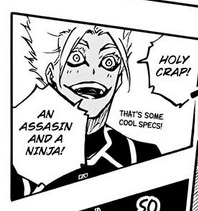
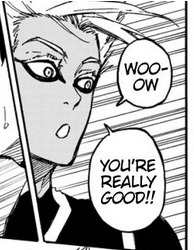

And at the same time, what, along with "watch as world reaches its end" and "at the end of the day, when I became nothing, tears came out" demonstrates the duality of his nature is his attitude to losing.
He and Kaiser actually have too many parallels, but this is one of the most obvious - even though they treat the issue differently, they act in the same way.
They're both prepared to admit when they're losing - and they're both willing to break themselves for the sake of the goal. They both know how and when to tame jealousy and the losing parts of their being.
Because they don't believe in winning (explosion) any other way.
Shidou knows when to back down. Because he learnt this too from his childhood - that if the opponent is stronger than you and you keep carelessly breaking forward, sooner or later it will destroy you. The only way to win is to recognise his superiority and fracture yourself, forming a new self - one that can defeat him (as seen in Shidou's willingness to stop fighting so that Ego would let him out, and Kaiser's with his story with Noa).
The ability to appreciate and recognise the strength of your opponent is a basic principle of survival.

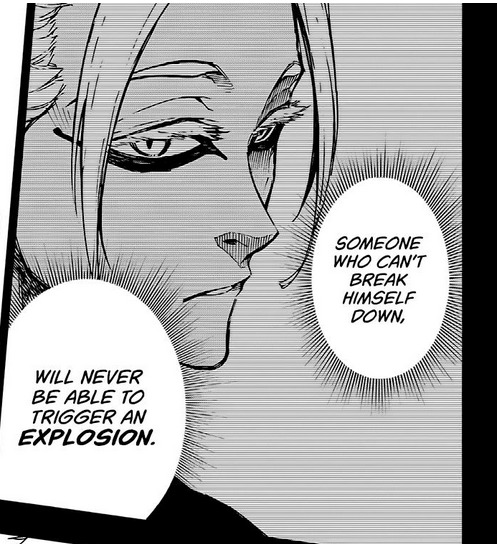
But at the same time (just like Kaiser), Shidou doesn't believe that there are invincible opponents. You just have to know the way to break them.
Or rather, not know: feel. Which is what happens at the U-20 game when Shidou enters the flow.

Logically, with all of the above, Shidou is a complete individualist, and is unable to comply with Rin even for the sake of a goal - because Shidou knows he can beat him. The point at which his PXG game has evolved - with two formations, one centered on Shidou and the other on Rin - is the clearest evidence of this.
Shidou knows when to back off - but Shidou isn't going to back off until circumstances force him to.
And in the end, this approach of Shidou ended up being too egoistic for Blue Lock, which is insanely ironic. What's also funny is that along with it, it's his attitude towards football that epitomises Ego's ideal - a player who puts everything he has into it because it's his way of surviving.
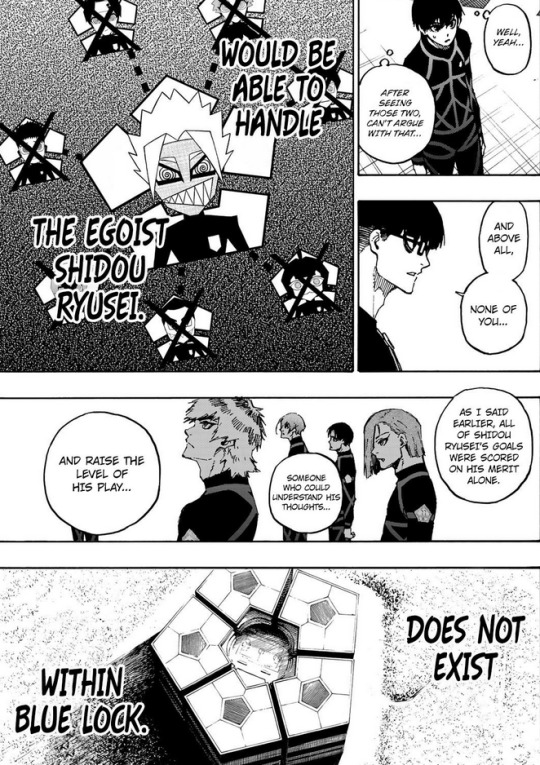
And so we come to that one scene of punishment. And it's this, along with Shidou's monologue from the U-20 game, that reveals him the most.
Because in the first few frames Shidou looks frankly miserable. Of course, anyone would look that way in his position. But suddenly Shidou starts talking calmly, offering a compromise - and then in the same second he snaps.
He explodes, cursing Ego - though as his words show he understands the reason for the punishment - he's even willing to compromise. It's illogical to curse the one on whom his salvation depends, isn't it?
Shidou acts this way because he's afraid.
Because in this moment - bound, locked up, and alone - he is defenseless.
He's like a caged animal that can't think logically - he's terrified, he's scared, he can only throw himself helplessly around the cage, grinning his teeth wantonly. This is the first time we see him so seriously angry (he still did get some fun, adrenaline rush during the fight with Rin).
The worst thing for Shidou, free as a bird or a tiger and most of all wanting that very freedom (more about that later) is vulnerability and limitation. Powerlessness. For the sake of overcoming this, he is ready to give up violence and his principles of life, as long as he is released and pulled out of this hell of helplessness.

And this fear is actually incredibly characteristic of his personality too.
But in order to understand why, of all the possible punishments of the world, it is the restriction that drives him to panic, let's remember what football means to him and his style of play in it.
Shidou has sharp and monstrous, even beastly reflexes and instincts. They are honed to the max. He is very strong physically, fast, agile, flexible, perfectly sensing the space around him. Optimal in his movements. Unpredictable. His illogical patterns are impossible to read.
Shidou is all of one naked reflex and instinct, free in his absolute savagery. He is a completely separate character outside of the Ego's system. He literally speaks a different language.
And Sae happens to be the only one who understands that language.
And up until their moments together, this is most vividly shown when Sae stops Shidou from beating up another player - and not just stops him, but understands what needs to be said.
Which again proves that in the violent chaos of Shidou's life he does have a certain logic. A constantly shifting, flexible one, but one...
Which, again, Sae alone understands.

And it is through playing with Sae that the whole point of why football is so important to Shidou is revealed. Why he plays it so instinctively, despising the rule, the tactics, and his teammates. Why is he suddenly willing to "break himself" for Sae, adjusting his rules of life to fit him, yesterday's stranger - because Sae accepts both him and his football, and doesn't try to limit or remake him. And that's exactly why Shidou is willing to be changed to match him.
Because Shidou's football, the life he wants to achieve, is all about freedom.

And that's not enough for him. It's not enough for Shidou just to play, just to live. It can't be enough for a man who is used to living on adrenaline and fighting for his existence every day.
Life for Shidou is about freedom, just as football is his escape and a place where he can exist.
Shidou stands out, doesn't follow the rules, exists so vividly and with every action clearly and distinctly proving his presence...
To live.
Both football and Shidou's life are about escaping, about breaking out of his limits. To see the world as himself - free and alive.
Football makes Shidou feel whole, feel alive. Football is what glues him together. It's the only way he can prove what he is - by achieving something. By making himself colorful, visible, uncomfortable - in a way that he can't be turned away from.
One that will allow him to leave a trace of his existence in the world. One that will prove to him that he is.
For Shidou, all these metaphorical (or not) explosions are actually a way of proving that he exists.

Even his fights and quarrels actually serve his purpose - and Shidou himself confirms this in his monologue. All of this is to be vivid, to imprint, to exist.
To be someone who cannot be forgotten or turned away from.
Who cannot be overlooked.
Who exists as obviously as he can.

Even his favorite subjects at school - Art and Physical Education (the latter obviously about football) - are related. Because it's possible to leave your mark on the world with art, too - and it makes sense that Shidou admires it so much. Because art is, after all, the most colorful thing a living person can leave behind.
And for Shidou, art is football.
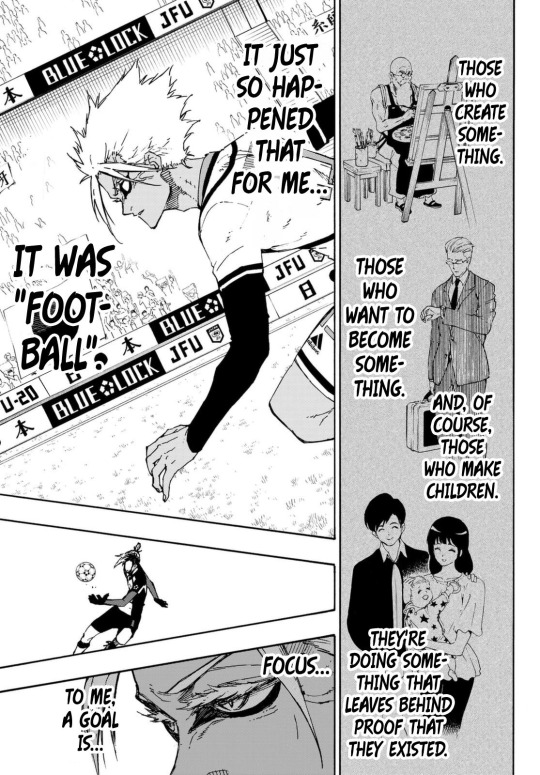
For him, to exist is to be free. And to burn so brightly that it blinds his own eyes - otherwise both life and football become bland, boring and insignificant to him. Just like his evenings - remember "When is the last time you cried?" from The Egoist Bible? And remember Shidou's response?
"At the end of the day, when I became nothing, tears came out."
Because in the evening, emotions and people disappear and you're left to yourself. Empty, aimless and in a way pathetic - because you're no longer on fire. Because you lose all the things that made you feel during the day.
Shidou depends on vivid emotions - because, due to his difficult youth, they are the only things that allow him to feel that he is alive.
That he's free.

Shidou's favorite song is also about freedom and trying to break free from the constraints of his life.
There is nothing in the world Shidou longs for more than freedom.
And the spider in Shidou's favorite song is limited and weak.
A spider without wings is incapable of flying. The spider without wings is trapped in unfreedom, looking at the blue and vast sky above his head every day - one that he cannot reach.
A spider without wings is incapable of flying - and those wings Shidou himself, like the spider in the song, could not get, no matter how hard he tried.
But Sae gave Shidou those wings. Sae gave Shidou the ability to play to his full potential, the way he craved with his entire being. Sae took him out from Blue Lock. Sae acknowledged him. Sae gave him a chance to make his mark on the world and gave him purpose, he showed him that there was someone who understood him and his aspirations on this base, animal level.
Sae gave Shidou freedom.
And Shidou learnt to fly.
#shidou ryusei#itoshi sae#ryusae#ryusae are only implied so you can think of them as platonic but Kaneshiro'd be disappointed with you#bllk analysis#blue lock#bllk#character examination#blue lock analysis
458 notes
·
View notes
Text
I love snuffy so much because it really shows you what it feels like to be on the other side of extreme egoistic ideology with no balance. Snuffy and Isagi are rational egoists, people who understand that you cant be a bigheaded jackass all the time and that only practice makes perfect. But with Isagi..hes still just starting out. He has only seen overshooting amd overestimating on small scales ro the point where most times HE looks like the villan crushing peoples small hopes..
And ego is just pushing this further and further, altering the bllk boys mindsets and what Isagi deems as success. He isn't really giving them any back ups because similar to Mick's situation..once you get a taste for a certain amount of success you can't fathom dialing it back even if you're set to crash and burn from how little you're taking care of yourself.
Snuffy has seen this play out. He's seen this type of behavior. And for the first time in the main blue lock story it's being shown through another character in a nefarious and truly dangerous light. Like we all laugh at the weird kinda cringe lines that Isagi says but it hasn't been contextualized in story yet because no one else thinks it's weird to say shit like

Well that. So for Snuffy to be so adverse to and cautious of that go big or you've completely failed mentality is so refreshing. Between that and Noa's "You aren't God." line and Chris warning the boys about not listening to their body I think the mentor arc is really meant to recontextualize their behavior and show the downsides of this ideology and how bad it fails when it does.
#character examination#character analysis#snuffy blue lock#bllk snuffy#bllk#blue lock#plot analysis#blue lock manga#bllk analysis
190 notes
·
View notes
Text
Aziraphale is Scared
The last look that Aziraphale gives Crowley in Ep. 6 is… weird.
They’re at a standoff, right? They’re ‘mad’ at each other, or at least in the simplest sense of the word. They’re on opposite sides.
The thing is: Aziraphale could have been looking at Crowley longer.
During the Bandstand Breakup, Aziraphale just stands there, stupefied, for quite a while. The key difference is Aziraphale’s outlook.
During the BB, Aziraphale is angry — not only at Crowley, but at everything. Heaven, Hell, everything. He claims that he doesn’t even like Crowley — this is a lie — and looks after him once he’s gone. It’s almost longing.
But.
In E6, Aziraphale had just been kissed. He actually told Crowley that he needs him — this is not a lie. You’d think that, after six thousand years of waiting just to acknowledge some sort of friendly agreement, he’d have been ecstatic.
But now, he’s devastated. Why?
Is it because he has to leave Earth? No. In the BB, Az was conflicted both by his feelings for Crowley — even if platonic — and his wish for normalcy on Earth.
But in E6, he’s conflicted by two different things, and it’s not what you think they are.
He wants to fulfill his angelic duty. In the bookshop, after Beez and Gabriel confessed, he tells Uriel that the angels haven’t done anything wrong. They won’t Fall.
Aziraphale has been terrified of Falling for the entire course of the show — except for when Crowley was an angel.
In a way, Aziraphale was happier when Crowley was an angel. He’s worried that no matter what he does, if he and Crowley are an us or not, he can’t be happy if Crowley isn’t an angel. Crowley’s Fall has made him the fussy perfectionist he is, scared of making mistakes.
The other reason, now.
Az and Crowley have had fights before. They’ve been fighting for six thousand years, maybe even longer than that. The worst part is, they’ve been loving for that long, too.
I think that he’s afraid that Crowley doesn’t know how much he loves him. I think he’s afraid that the demon will take his words for granted, and when they’re finally reunited, they’ll have to spend a long time trying to love each other again.
Again, he’s scared.
He wasn’t afraid of Falling during the BB — he thought that he was supporting Heaven, doing everything he could.
He’s scared to make eye contact, because to an extent, Crowley’s emotions are his own. They aren’t an us - they’re so closely intertwined that they are parts of each other.
That’s why he doesn’t hold Crowley’s gaze for longer.
He’s afraid e will have to face his own fears, but worse — through the eyes of the being he loves most in the universe.
After all, they could have been them.

#i need hjalp#aziraphale x crowley#good omens#crowley#ineffable husbands#good omens 2#aziraphale#be gay be crime#crowley x aziraphale#david tennant#michael sheen#they could have been them#we could have been us#i forgive you#don’t bother#long post#oops my hand slipped#Character examination#Aziraphale and Crowley mirror each other#they just express in different ways#good omens s2#ineffable breakup#innefable divorce#bandstand breakup#why neil why#WHY
51 notes
·
View notes
Text
gonna be completely honest. i don’t think c!wilbur likes people. i think he likes the idea of people but not the actual people.
people are loud, needy, annoying, and they need taken care of. their ideas however are something he can control. only pay attention to when he wants to and it never talks back. if it does… well then it’s really the peoples fault isn’t it?
you might say “oh but tommy” but i don’t think he actually liked tommy as a person either. i think he didn’t start out that way but over time the people part just got lost and the only thing wilbur really cared about was his idea: that’s right l’manburg.
now here why i think this: wilbur said in his last lore stream that l’manburg was important to him because it was tommy’s and it reminded him of tommy. he died for l’manburg. would not leave it go even when it wanted to be left to the point where he destroyed it and himself with his obsession. he didn’t wait to leave tommy. he didn’t even properly apologize before leaving forever. he didn’t give the actual person tommy the effort it took to at least give his one devoted follower, someone he called a brother once, a well earned goodbye. instead he pushed tommy until it triggered tommy, he blew off tommy’s attempt at closure (you haven’t apologized to me yet - oh i did, when i got dream off you - but you haven’t said sorry - …) and then just left him with nothing but a note and empty promises of a return? it doesn’t feel like the same level of care. not only that he had spent the time before getting annoyed at tommy and just dragging the poor boy_around. . my point is, if he can’t show actual signs of caring to someone who’s supposed to be closest to him? does he actually care at all? or does he care only about the ideas they make that he can use.
#c!wilbur#c!tommy#dsmp#wilbur’s final lore stream#character examination#tldr: c!wilbur is a duck and i hate him#but i think he’s an interesting character#the absolute sociopath that he is#there’s more but i’m tired and this is a half formed thought
8 notes
·
View notes
Text
i need you guys to fall in love with female characters the same way you do male characters i need you guys to fall in love with female characters the same way you do male characters i need you guys to fall in love with female characters the same way you do male characters i need you guys to fall in love with female characters the same way you do male characters i need you guys to fall in love with female characters the same way you do male characters i need you guys to fall in love with female characters the same way you do male characters
#everyone's superiority complex about this post is so annoying#'not me op!!! im perfect and fall in love with ever female character!!!' didnt ask did i AND i dont believe you#we all have internalized misogyny and should examine it whenever confronted with it#i do too!! sometimes i have to ask myself 'is this character actually annoying or is she a woman' and results vary!
2K notes
·
View notes
Text
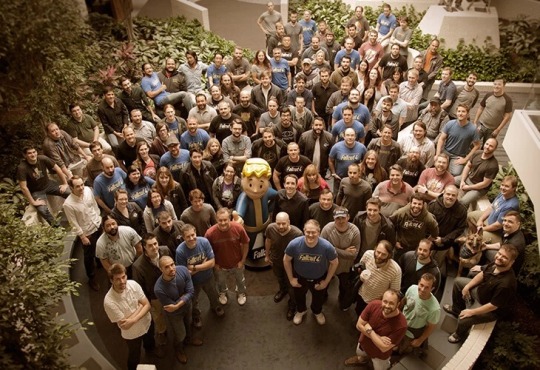
a development team that looks like this could not possibly have any preconceived biases against Black people. noooo way. its just a mistake that all of the Black people in fo4 are slaves or named after fascist colonizers or murdered or stereotypical conspiracy freaks. there is no way that the reality of this team is reflected in the art they create over and over and over and over and over and over and
[ID 1: A photo of the Fallout 4 development team taken from above and forward, showing a large crowd smiling at the camera, made up apparently entirely by white people, and almost entirely by white men. End ID.]
#im sorry i cant fucking deal with this shit anymore#genuinely if youre white/nonblack and think that you can excuse the shit this team has done to Black characters with fanfiction ass excuses#i think 1: you should unfollow and 2: you should maybe fucking get more Black peopel in your life#but then again i wouldnt want to put them through that because its not our fucking job to make you realize that racialized violence in medi#made by white creators cannot be uncritically examined. that is Dangerous#and it is a privilege and a huge one at that to believe that fiction is a bubble outside of reality
631 notes
·
View notes
Note
I’ve never really been a Konig girly but yooooouuuuu *points trembling finger* your konig makes me fucking FERALLLLL!! ALL OF THEM!! Fae!Konig can follow me around and have my fucking children (I don’t want any), Viking! Konig can kidnap me anytime, Cowboy!Konig with his big fucking waist and his creepy little stalking habits UGH, and King!Konig can tackle me into the dirt and fuck me CRAZYY!! The way you make him so intense. I always imagine this simpering predator watching through the trees. God it’s so good. You’re so good. These King!Konig updates are having me claw at my walls.
Sorry this got a bit feral…felt like therapy getting all that horny out.
Idk what it is but king!König fucking us into the dirt is doing something to the worms in my brain... continue to be feral in my ask box it is like therapy
You should have guessed that this was a possibility. The king takes pride in being an animal, makes a point of baring his teeth before he bites, you really should know that this sort of thing isn't beneath him. The only thing truly beneath König is you, and you take great pleasure, and great annoyance with that fact.
That said, something must have really pissed him off for him to come find you. He tramples all over the flowers you'd been planting, and when you tip your head to glare up at him he's undoing his belt. He grabs your hair when you scramble to stand and forces you back to your knees.
"Open," he orders you, his voice panting as he tugs his cock free. You're quick to comply, your lips parting and tongue stuck out for him to slap his hard cock against. "It's lucky you're already on your knees," he grumbles.
You're reluctant to agree, but that doesn't stop your eyes from lidding or your tongue from lapping at the dark head of his cock. You'd wonder what got him so mad if you weren't otherwise occupied. You open your mouth wide and König pulls your head back further, rubs his cock over your parted lips until you pout. He clicks his tongue and shakes your head with a growled, "open Schlampe."
Your hands find his thighs, holding onto the firm muscle as you open your mouth to let him feed you his cock. You lave your tongue along the underside of it, following the vein with the flat of your tongue. You gag and König pushes his cock past it, hitting the back of your throat and forcing you to swallow. Every thick inch stretches your throat, and your fingers tighten on his pants as you gag and whine around his length. He pulls back without you hitting the base, and you suck in a gasping breath. Again he rubs his spit slick cock over your face, wetting your lips as you pant. You hold your tongue out for him, preen under the murmured praises, and try again. Könjg pets you so nicely, pushing your head down as he ruts into your mouth.
You feel a little dizzy, your head fuzzy and your eyes off focus, you can't do anything but stare up at him holding the malice in his gaze. You don't realize you've reached the base of his cock until the coarse hair starts itching your nose. It's all him, all König: your vision, your taste, your smell and touch, you're full of him. It makes you drip. He says something and you hum, content to be a warm hole for his cock for a few moments. It's such a nice day after all, you can spare your king a few moments. Another murmur of something that doesn't reach your brain, a soft hand stroking down your face.
König pulls you off his cock roughly, rough enough that you sputter and cough as you're turned and thrown to the ground. You push yourself up onto your hands and knees to avoid finding your face and the dirt and are pushed back down as König flips your skirt up. Heat rushes over you. You stare down his aid, who quickly averts their gaze.
If you had time to be embarrassed it's quickly forgotten as Könjg pushes his fat cock into your dripping cunt. You gasp, your eyes roll, it's burning tight but König doesn't seem to mind. Not with the way you rock your hips back against him, greedily trying to take every inch of him. "Braves Mädchen," he purrs, holding onto your skirts to pull you back against him, "fuck yourself on my cock."
You don't need to be told twice. The sound of your sopping cunt slicking the king's cock fills the air, each slap of his hips against your ass amplifying the noise. You whine and fuck yourself on each thrust, the smell of earth filling your nose as your fingers dig into the recently planted bed. Your poor flowers, your poor pussy. König isn't gentle with either, fucking you hard and fast while you try to keep up. The head of his cock hits your cervix with each thrust, hot aching pleasure filling your stomach as easily as he does. You jerk against his hold when you feel his other hand reach between your legs to toy with your clit.
You shudder, moan and whine for him, rocking against his hand and into his thrusts. You can feel the way your slick drips onto his fingers, the way it must be pooling around his cock, forced out with each mean buck of his hips. He rubs back and forth over your clit, the tingles of it jittering up your spine to make your back arch. Könkg is quick to adjust his angle with the lifting of your hips, driving down into you until you're crying out for release.
"Please König," you whimper, "please, please." You barely know what you're begging for, but you know he'll give it to you. Know it as surely as you know he'll pinch your clit and growl for you to come, an order your body is more than happy to comply with. You hardly notice him filling you, the heat of his release only making you clench and moan louder as you shake with orgasm. He fucks you through it, letting you milk him for every drop of come until he pulls out.
The only thing that keeps you from collapsing into the warm soil is König's hand. He barely has the courtesy to tug your skirt down before he's hauling you up over his shoulder. You didn't know he could do that. You can feel his come starting to drip out of you as he walks you towards the castle.
"Tell the servants to run a bath," he orders his aid, "and make sure we aren't disturbed."
Big words coming from a man that just fucked you on the lawn. You'll consider the consequences of that later.
#cod x reader#x reader#x oc#cod x oc#könig x reader#könig cod#könig mw2#könig call of duty#könig x f!reader#f!reader#oc: liebling#medieval au#king!König#konig x reader#tw dubcon#they have preconsent its fine#do i have a public play kink???#im not going to examine that so im gonna say no#i love when people tell me i make them like characters they usually dont#makes me feel like im doing something#not something good but definitely something
544 notes
·
View notes
Text
genuinely despise the way straight writers write about butch suffering. it's always some tired dogshit like "she was hurt by a man so now she's cold and bitter and mannish, if only she'd heal, then she'd become her natural feminine self again!" which sucks because i absolutely would love to watch a relatable butch character go through something harrowing and emerge victorious, just not if it was written by someone who seems to have misunderstood the basic nature of my existence
#and btw when i talk about butch suffering i'm talking about the patterns that emerge when you look at all female characters who are#noticeably more masculine or tomboyish than other women in that story or in that time period#whether they ''count'' as truly butch is secondary – they're all relevant when examining female masculinity in media#anyway i'm off to beat my butch OCs with hammers since nobody in hollywood knows how to do it right
593 notes
·
View notes
Text


Tor: Hey Vesna. I didn’t know you have a rodent.
Arne: Nice to meet you! I’m Arne, Tor’s husband.
Vesna: It’s a DOG. You didn’t say you have a BEAR… and apparently a husband too.
Arne: Would you like to come for a cup of tea? Tor just baked cinnamon buns.
_
Tor belongs to @littleulvar
#original character#modern au#vesna#tor#arne#vesna just learned more about tor in thirty seconds meeting arne#than knowing him for few years when they occasionally worked together#tor is medical examiner and helped vesna in few cases#because vesna is kind of a private detective and ex mercenary#also vesna hearing all of this would be like:#i don't know what surprises me more: the fact that you have a bear or that you bake pastries#pastel goth druids
886 notes
·
View notes
Text
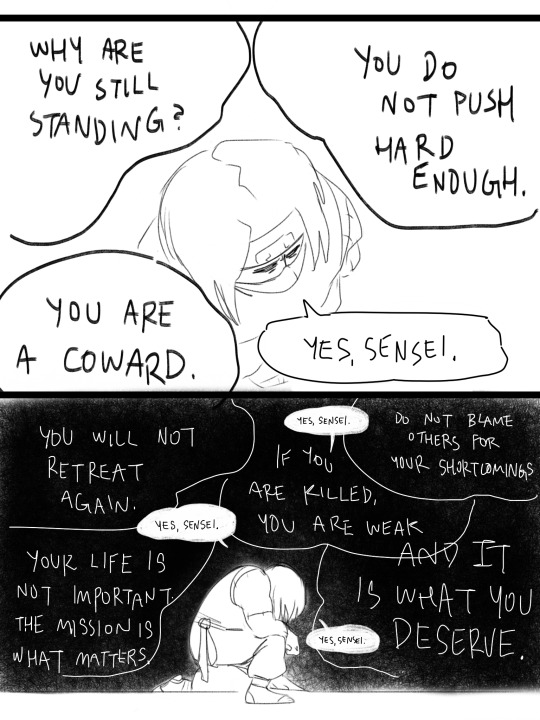
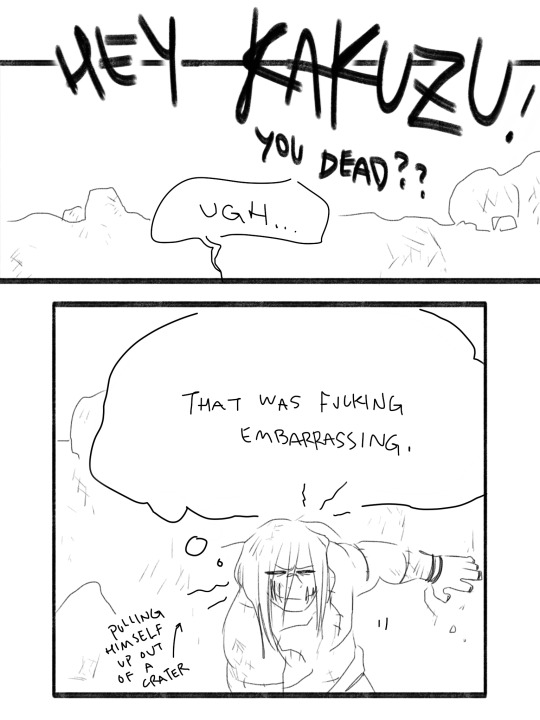
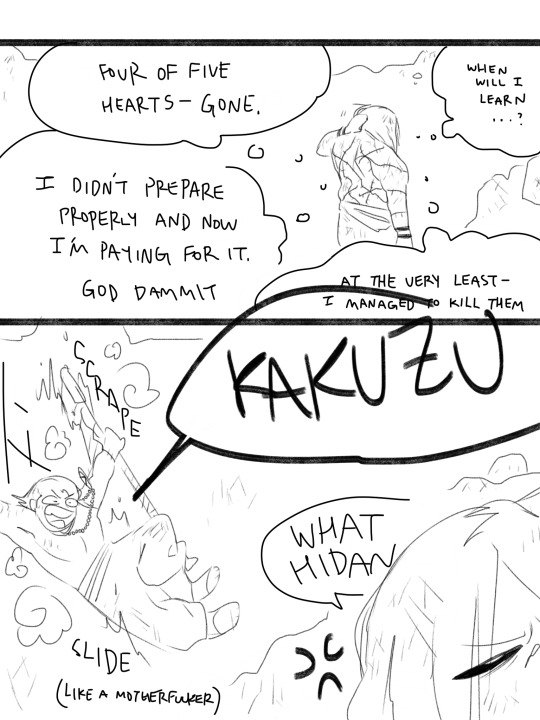
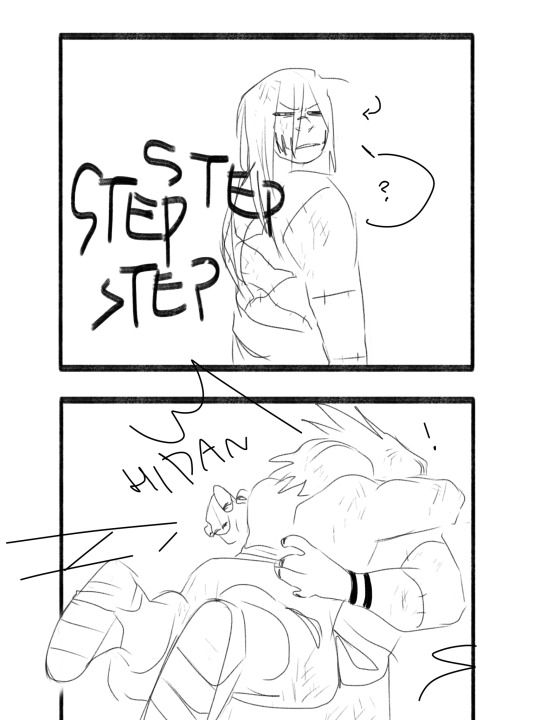
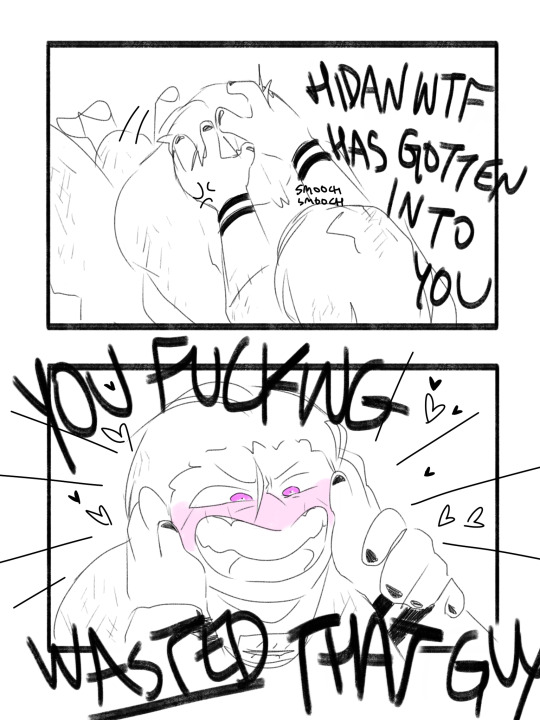
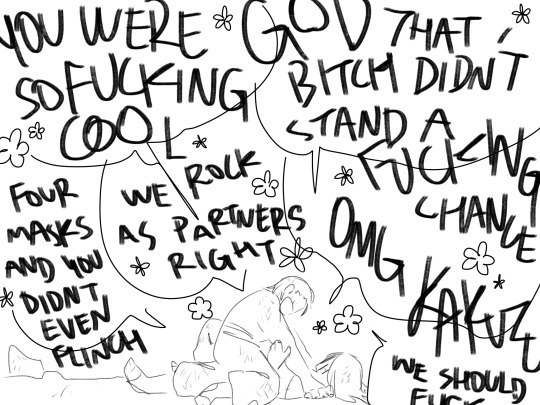
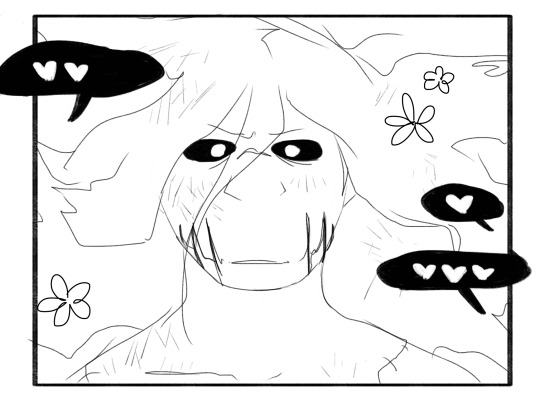
do you guys think kakuzu's ever really hard on himself bc of his time in the waterfall and then hidan just unknowingly is himself
bonus under the cut
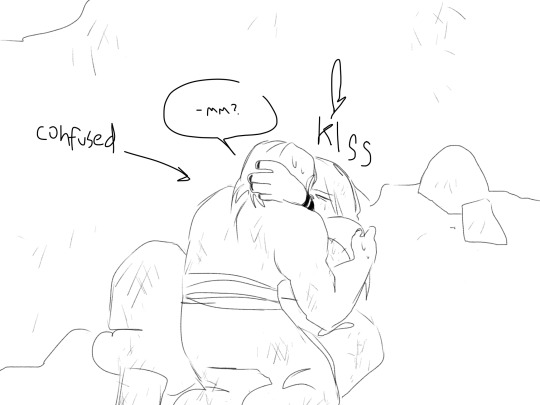
#kakuhida#hidakaku#hidan#kakuzu#naruto#drew this while listening to vacation bible school#puts vacation bible school on my kakuhida playlist#i drew this instead of sleeping#literally just pulled an all nighter#enjoy#I just like that Hidan doesn't really give compliments#but he DOES get super excited when they have a good fight alongside eachother#he's so fcking gay for kakuzu#he is SO hot for him when they kill people together#I don't see enough character examination of kakuzu#cmon people he's SO interesting#what a character#and so is hidan#they're perfect for each other#again. i love that hidan never know wtf is going on#he has no idea what kakuzu is thinking at any given time#does not understand shit#yet he still seems to come through#thats WHY THEY ROCK AS PARTNERS
467 notes
·
View notes
Text
Bat Timeline vs Bat Publication Timeline

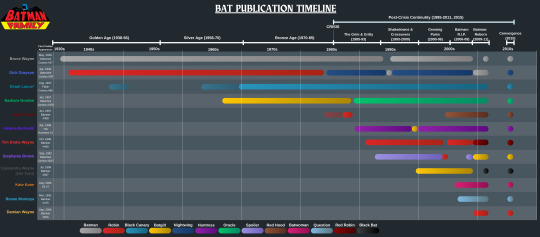
I kept my receipts and citations here. Also, I used cover dates.
Neat things I noticed:
Nothing much happened in Gotham until Robin arrived both in continuity and in print history. Sorry but your lone wolf Batman doesn't exist :P
Dick permanently becomes Batman at the same age Bruce was when he became Batman; 25. Kinda poetic if you ask me.
Babs was Oracle longer than she was Batgirl in both continuity and publication history!!
Completely forgot that Dinah was literally her own mother once upon a time. Weird stuff.
There's not enough Jason!Robin stories to fit the 3 years some fans claim he was Robin for. Also the 3 years idea doesn't work if you track Dick's age. My guess is he was originally younger than 15 when he died but DC aged him up so he could be an adult when he returned as Red Hood.
It's pretty clear that Helena's integration into the group began the expansion of this complicated "family unit". She set the precedent for those noirish vigilante work relations.
Tim has to be a vampire if he's meant to be 17 three whole very explicit in-continuity years after he had his 16th birthday.
Stephanie has basically been in this gig as long as Tim! And almost as long as Helena too. Proper seasoned ass-kicker who Damian should look to for pointers.
Also remembered that Cassandra's Batgirl run is the best thing to come out of Gotham in the early 2000s.
I dunno I think the One Year Later timeskip was just unnecessary.
Kate and Renee are almost as new to the vigilante gig as Damian!
Bat-adjacent Rose Wilson was said to be 14 during her first appearance around Year 15 so she's the same age Tim.
Not Bat related but Lian Harper's age works with my timeline so yay! Born early Year 14, she's 5 during Cry for Justice in Year 19.
I have a theory, based off of Batman #416, that Dick graduated high school at 17. He says he was Bruce's partner for 6 years and that after he was fired; he left college after the 1st semester, then moved around the country, had his own adventures, and "eventually" ended up with the Titans. Also, he was 21 during the Titans' 3rd anniversary (New Titans v2 #71) and 19 when he became Nightwing (Tales of the Titans #44) so the Titans (re-)formed when he was 18. This means he probably only turned 18 in the academic year he began college (or has a summer birthday). So he was Bruce's partner from ages 11-17, did his own thing for a while as he did in the 70s, eventually joined the Titans at 18, and became Nightwing at 19. Jason comes into the picture soon after Dick retires the Robin identity.
#“what's the point of a timeline; it's not meant to make sense that way; no one ages” STFU#the point of a timeline is solidifying that characters do age and that time is able to flow! Cuz time's an interesting theme to explore!#this is examining continuity as the literal history of these paper people and enabling them to grow (up) issue by issue#batman#bat family#batfam#dc comics#comics#timeline#bruce wayne#dick grayson#barbara gordon#dinah lance#jason todd#helena bertinelli#tim drake#stephanie brown#cassandra cain#kate kane#renee montoya#damian wayne#robin#batgirl#black canary#huntress#nightwing#the spoiler#oracle#red robin#red hood
331 notes
·
View notes
Text
OKAY so the only thing I want to say about yesterday's spoilers (Ness backstory) is that borderliner* Ness is canon now lol
✅ explosive anger
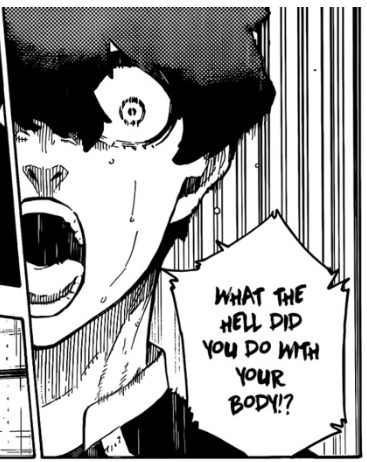
✅ feeling neglected, alone, misunderstood most of the time
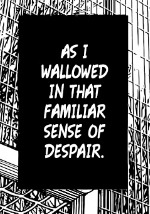
✅ low self-esteem and the resulting self-hatred
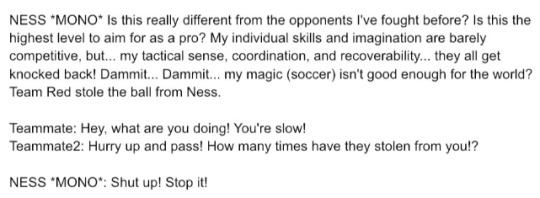
✅ strong, overwhelming emotions
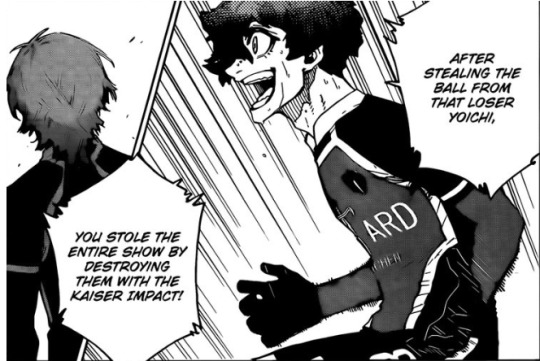
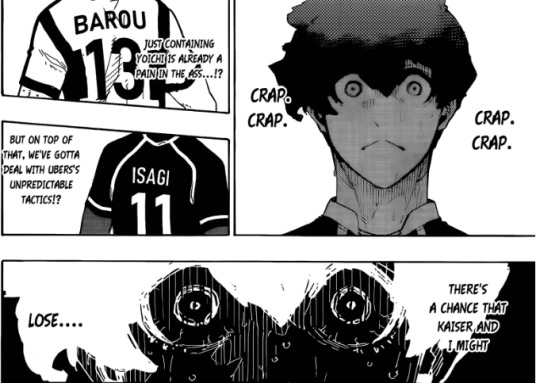

(feelings that can't be explained == too high (for average person) bursts of them. Inability to handle them)
✅ black and white thinking
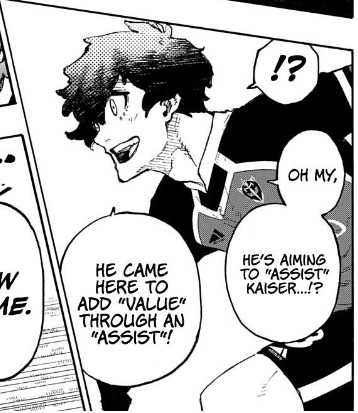
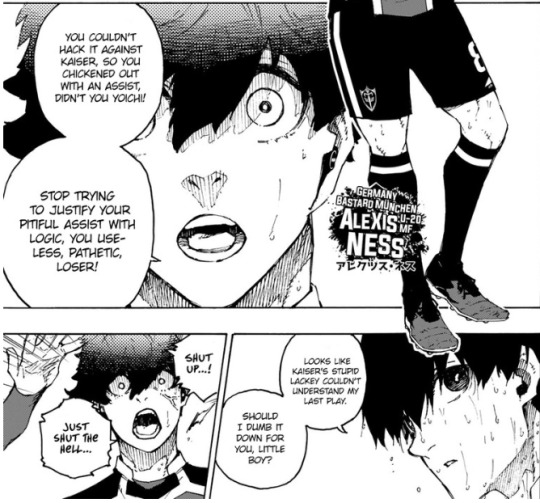
(Isagi's either good (tosses to Kaiser) or bad (doesn't toss to Kaiser) lol)
✅ fear of abandonment + self-harm
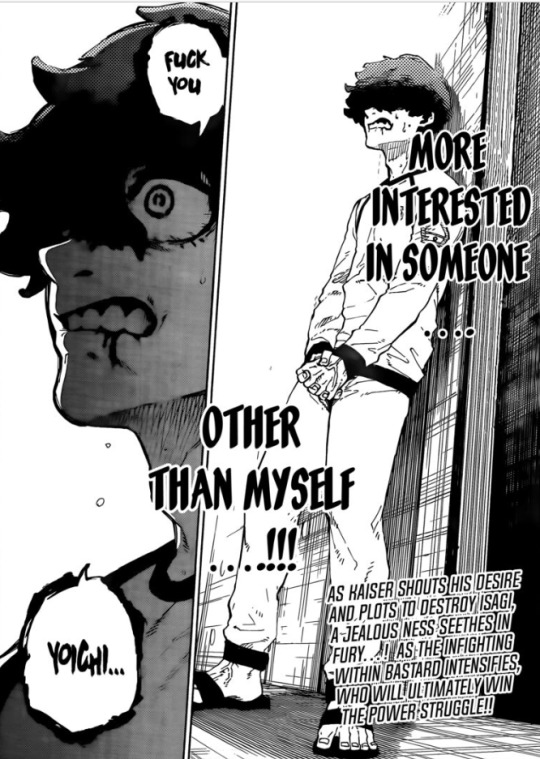
✅ very intense, frequent, extreme emotional swings
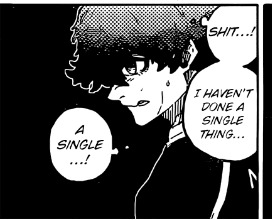
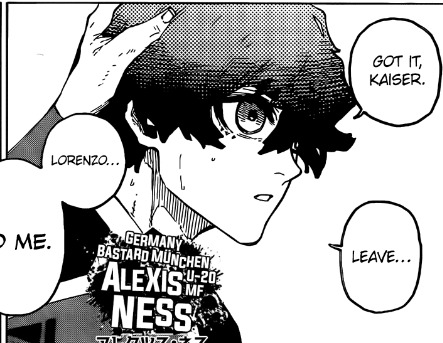
(difference of one second)
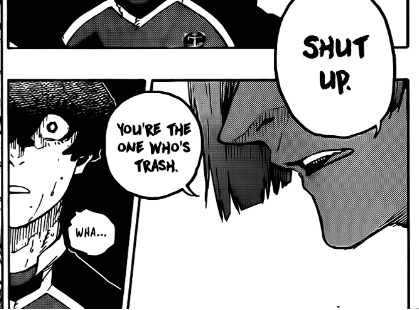
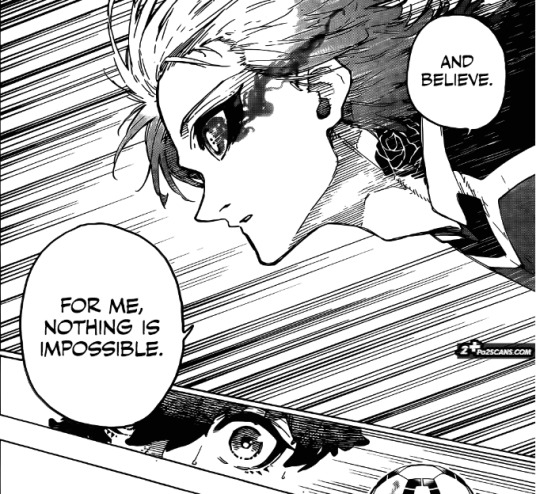
(difference of one second pt.2)
✅ maladaptive daydreaming
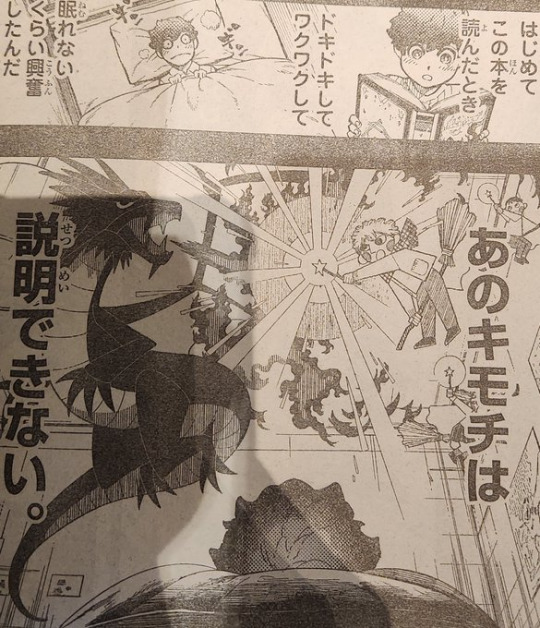
✅ determining one's value through relationships with others


✅ unstable relationships
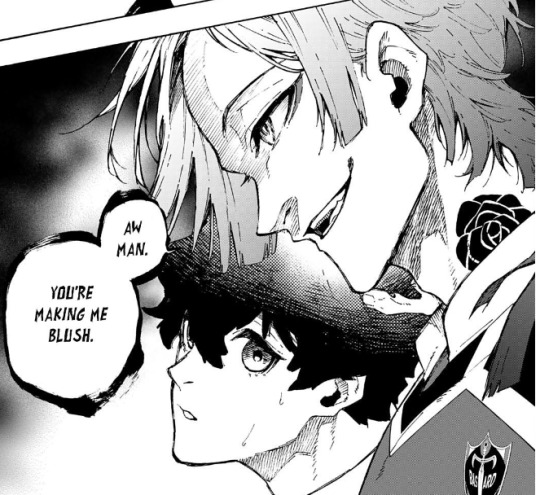
I'm really disappointed that chapter haven't shown Ness' attempts to gain his parents and siblings love but, eh, okay. I can work with that
*
A little background on who people with borderline personality disorder are and where do they come from.
(Of course, each case is unique. I'm talking about the average manifestation of the disorder here.)
Borderline Personality Disorder (BPD) is a type of personality disorder in which a person is unstable, hypersensitive, highly anxious, and has no sense of self (no feeling of identity). One in ten patients end up committing suicide.
In fact, borderliners are people with no emotional skin. What for a stable person is a small domestic nuisance - for a borderliner is boundless terror, fear, a complete sense of helplessness and overwhelming self-loathing. Are you sick? It's your fault, you're worthless. You forgot your pass and had to buy an underground ticket? You're disgusting, step under a train right now. You forgot the food in the fridge and it spoilt? Don't you dare eat for another three days, punish yourself, cut yourself because you're nothing. That's not an exaggeration, it's true. And then you see an advert with a doggy and you laugh until you cry and all is fine.
It's like that dozens of times in one day.
Why do borderliners work this way? Heredity plays a role (which in Ness's case can be seen, for example, by the fact that he reacted acutely to some things even as a child), but to a greater extent, of course, the family, because when BPD is treated in the early stages, it is more easily reduced to remission (but does not disappear completely - it is like the core of the personality). Speaking of family types, typically borderliners come out of families with a narcissistic parent or the same borderline. Why exactly is that the case?
Because life with a narcissist/borderliner parent is an endless battlefield in which the child is forced to survive. Any emotion you have, if it doesn't fall under the parent's incomprehensible ideas, is repulsive. Any request you make and attempt to speak your mind is a violation of all laws and the worst offence. Today you're the golden child, tomorrow you're trash. Today your mom says she loves you, and tomorrow she blames you for divorcing your dad. Today dad likes the tea you made him, tomorrow he'll throw it in your face. It's a constant violation of personal space, an inability to have privacy, an impossibility to defend your interests - and yet a staggering neglect, a removal of the child from your life. Parents in such families usually divide their children into "golden" and "outcast" children, emphasising in every possible way how terrible the lousy sheep of the family (the outcast child) is, and encouraging bullying by their siblings.
Sounds similar to Ness's story, doesn't it?
In such families, the child by the age of 6 or 7 already knows that he is disgusting, horrible, and must do anything to avoid being abandoned - because the parents emphasise in every possible way that he is horrible, but they (for now) keep him out of mercy. A child learns by the slightest movement of the eyebrows and corner of the mouth to know when mom loves you and when she hates you, when dad is good and when he's bad.
The childhood of such children is a battlefield, and they come out of it emotionally disabled. For example, a very common consequence of living in such a family, in addition to BPD, is PTSD. Yeah, like war veterans.
(and by the way, borderliners VERY often end up paired with… Narcissists. Because it's a familiar love-hate game. And on top of that, also a beautiful (non-existent) personality to take a bite out of for your non-existent self))
-------
(if it seems like I'm somehow writing about borderline disorder a bit too unkindly - I love Ness and sympathise with him. It's me whom I don't love lol)
#alexis ness#kainess#blue lock#bllk#bllk analysis#blue lock analysis#character examination#blue lock spoilers#bllk spoilers
335 notes
·
View notes
Text
I like that Isagi has compassion but no empathy. I think we need more low empathy protagonists because, low empathy doesn't make you a bad person persay and it's important to make the distinction.
Like Isagi is veryyy compassionate, he listens to his teammates, he tries to welcome back kunigami instead of ignoring him, he wants to get/understand others. He isn't some emotionless monster, despite his ego.
But he does not have empathy, he can never fully put himself in someone else's cleats. He can only analytically guess what they're going to do based on previous knowlage. He's always a little taken off guard by bursts of emotion on the field and usually gives up trying to help those people because he can't directly pick up on what they are feeling.
That's why he is the perfect foil to Rin, he never gets sucked up in his whirlwind of emotions. He'll be there for you but Isagi will never feel with you. And that doesn't make him a bad person.
#YEAH#HE HAS SO MANY ND TRAITS BUT ANYWAY#i think this is a big piece to his character people keep forgetting#isagi yoichi#blue lock#bllk#character analysis#character examination#blue lock isagi
669 notes
·
View notes
Text
Something about change and Kristen Applebees and Ally Beardsley. Riz the goblin, Fabian the half-elf, Adaine the high-elf, Gorgug the half-orc, and Fig the tiefling, these 5 actors and performers saw D&D and made something so inherently engaged with the fantasy of not being yourself. Ally Beardsley, now nearly 6 years ago, looked at this system and said yeah I'll be a human girl who believes in God. And it is the most interesting one to me. Because where the other 5 play a character who more and more diverges from the self (never completely though) Ally continues to have Kristen grow and change and yet remain a human girl who believes in something. Maybe it's not always God anymore but it's god or gods or YES! or YES? and on and on, but it's a human girl who will not stop believing. And Kristen stays mostly the same. In that place, though, Ally changes. Ally goes from she/her to they/them, Ally starts T, Ally gets top surgery. The way this character interacts with and lives with change contrasts Ally the actor so incredibly.
#it's captain america to me#it is making something and saying this is me taking things out of me knowingly and getting to examine them in this space and when#everything about the medium demands change I do it myself because this character is me and also all the things I'm not#but maybe used to be or maybe I used to think I was#fantasy high sophomore year#fhjy#fhjy spoilers#d20 fhjy#dimension 20#kristen applebees#ally beardsley
213 notes
·
View notes
Text
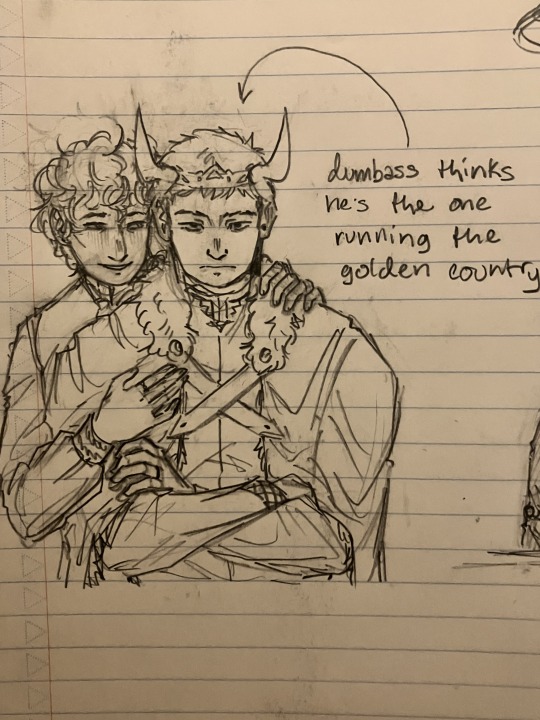
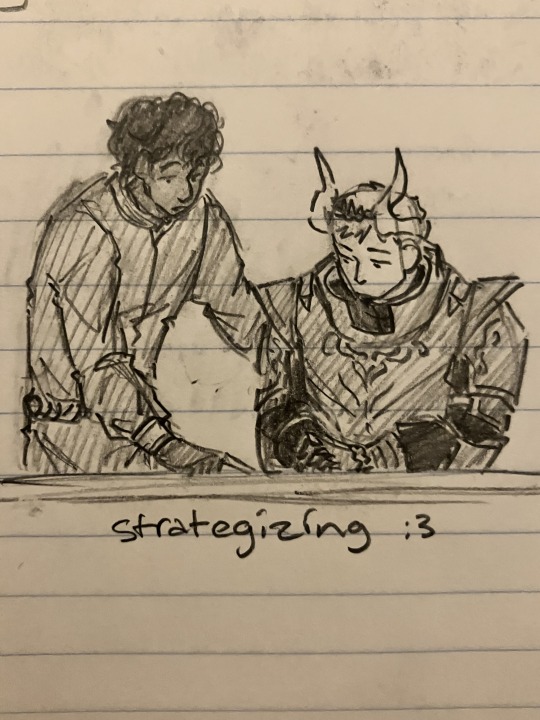
more demon king laios + evil kabru because i can make them so awful and twisted
#thinking. so much about them#dungeon meshi#art#fanart#dunmeshi#dungeon meshi fanart#delicious in dungeon#laios touden#kabru of utaya#labru#labru except im examining their characters under a microscope and getting rid of all their good qualities#dunmeshi au#kabru is totally giving laios advice thatll only benefit his cause#but laios is just going along with it cause “yeah my boyfriend is usually right”#we dont talk about how much i obviously struggled with kabru's face in image one
277 notes
·
View notes
Text
CLASSES - a comprehensive guide
The first thing that needs to be said is that there is no such thing as a "bad" class. All of them have the potential to be a great detriment OR great boon to the rest of the team, depending on how far along the journey of self-actualization a party member is. Some may have steeper challenges, but this corresponds with greater rewards.
The second thing that needs to be said is that all players are part of a team, and all personal journeys and playstyles are interlinked. No class is truly "solo." Even the smallest viable session is still two people, and even the most suitable classes for solo play are stronger when they're in a party.
The last thing that needs to be said is that the game wants you to succeed. The game, inherently, wants every player to reach godhood, wants every player to self-actualize, wants every player to win. It respects free will and free choice, so it will allow for failures (and, indeed, doomed timelines are vital to the alpha one existing), but Skaia is ultimately optimistic, and tries at every turn to ensure that a golden ending is possible.
Because, after all, SBURB/SGRUB - and Homestuck itself - are about children growing up, maturing, and learning compassion for each other. About fixing their flaws and rejecting the negative aspects of the society they came from. It's about how it is our duty, our responsibility, to become kind, mature people who care about one another, because we will one day be responsible for creating a new society.
And so, without further ado:
ACTIVE (-) Classes and PASSIVE (+) Classes are described with the dichotomy of "powers working for the self" vs. "powers working for others," but I believe this to be an oversimplification of what the active and passive split is. Both active AND passive classes benefit from being in a party; however, an active class will gain fewer party benefits in exchange for being more suited for solo play, while a passive class will be less suited for solo play, but confer much greater benefits to party play.
This is reflected in their personal quests: while active classes and passive classes will both require intervention, empathy, and guidance from their teammates, the struggle of an active class is usually one of grappling with internal flaws, and the struggle of a passive class is one of grappling with interpersonal or societal relations. In other words, the personal quest of an active player will usually involve getting therapized, while the personal quest of a passive player will usually involve addressing a systemic societal issue. Often, both will be required, but whether a class is active or passive will indicate an area of focus.
KNIGHT - / MAID +
PARTY MANAGEMENT
one who wields [aspect] or leads with [aspect] / one who distributes [aspect] or manages with [aspect]
KNIGHTS (-) are a very flexible and versatile class; "wielding" their aspect does not necessarily mean they are skilled at DPS. It actually indicates the way a knight interacts with their aspect, a very straightforward relationship of tradesperson and tool, or soldier and weapon. Similarly, while a knight does not always take up the "leader" position in the party, they will be the "spearhead," a point behind which the other players rally, a beating heart keeping the party together.
This straightforward relationship between a knight and their aspect leads to knights finding little difficulty mastering their aspect once they've begun. Many knights are, in fact, instinctively drawn toward utilizing their aspect, in the same way that they are naturally drawn toward roles of importance or heroism.
Knights often struggle with their perceived place in society, as well as with their innate sense of self and self-worth, seeing themselves as outcasts, resenting the responsibility placed on their shoulders, and fearing vulnerability. Unaddressed, these issues will lead to knights who actively become a detriment to party success. For example, they can dismiss valid concerns, shirk their duties, and in the worst case scenario, actively lead the party down the wrong path, invoking their natural ability to lead for ill.
Therefore, a knight's journey is one of accepting themselves and accepting their duty to better the world. It is about coming to terms with their own insecurities and learning to rely on others. It is about learning to take responsibility, and accepting the banner of a just and glorious cause.
A fully realized knight will be the center of every charge, the guiding star behind which the other players rally. They can provide clarity and guidance to those still on their journeys, and peace and comfort to those who are struggling or in pain. Where the knight goes, the party will follow, as a unified and united front.
MAIDS (+), meanwhile, tend to be on the backlines. If the knight is the forward march, then the maid is the supply line, an incredibly vital role whose absence is disastrous, even if its presence is nearly invisible. Maids have a nearly infinite well of their aspect to distribute, and are uniquely talented at managerial duties - keeping players on task, patching up the holes in a plan, sourcing and supplying resources, so on and so forth.
This is not to say that maids are relegated to support roles - a maid is usually capable of holding their own in combat just fine, especially if they've been endowed with a more combat-suited aspect. Both knights and maids are extremely versatile. That being said, maids truly shine when they're able to take on these backline roles, and many maids are more noticeable by the devastating effects of their absence rather than the invisible touch of their presence.
However, they are the class that most often starts in subservient conditions - low status, strict duties enforced upon them, so on - and their personal journey is a constant struggle against the control of others. Maids whose parties fail to grapple with and undo these shackling forces will find their maids succumbing to the influence or control of malicious entities; in the worst-case scenario, a maid can become an actively hostile enemy or saboteur, invisibly pulling the party's strings and setting them up for failure.
Therefore, a maid's journey is about rejecting societal oppression and throwing off the chains that bind them. A successful maid rises to become the head of the household - nothing occurs within the game that does not first pass the maid's inspection, and their touch ensures that there is a place for everything, and everything is in its place.
A free maid, who belongs to themselves, incomparably increases a party's efficiency. Every communication line is clear, every distribution route is clean, every mystery is solvable, and every plan is airtight. A maid guarantees that nothing can ever go too wrong.
PAGE - / HEIR +
TEAM BONDING
one who must earn [aspect] or inherits the mantle of [aspect] / one who is beloved by [aspect] or awakens to [aspect]
PAGES (-) start the game with the fewest benefits from their aspects, but the greatest potential for growth. Theirs is a constant battle with the self; they are often cowardly and naive. They possess sensitive souls, and while it is incredibly easy to hurt a page, it's much more difficult to build them up. Because of the difficulty of raising this class, it's practically defined by its journey - a constant struggle against the self - rather than its destination, and the powers the class confers.
Pages, like heirs, are classes of inheritance. A page is promoted by trials and tribulations and comes to inherit a greater power than they begin with; in the same way, the class will one day come to embody its aspect, although the road will always be turbulent and long. Moreover, it is a journey without end; pages, being as sensitive as they are, are the most prone to backwards progress, even after reaching their peak.
They prone to staying weak throughout the entire game, never self-actualizing past being the party joke. They attract the obsession and ridicule of stronger-willed players, and their mistreatment can become extremely divisive. A page can easily become a party's albatross, the epicenter of massive interpersonal conflicts, which can tank an entire session.
Therefore, a page's journey is one of the most difficult of all - that of teaching others how to care about other people. Pages rely on great patience, kindness, and understanding. Their sensitive souls must be carefully nurtured and propagated with love and attention. In the same way that a page can tear a team apart, they can bring a team together, all in the name of compassion and empathy. A fully-realized page is the symbol of a party that has linked hands with one another.
Self-actualized pages, as a result of the difficulty inherent to the class, are incredibly powerful and versatile when fully realized. Inheriting the mantle of their aspect, they become pure embodiments of their aspect, capable of achieving impossible feats of raw, unfiltered power, and inspiring all those who gaze upon them.
HEIRS (+) begin the game very strong, but have a difficult time becoming stronger. This is because their usage of their aspect is very instinctual to them, even at times being entirely beyond their control, hence, "beloved by" in the class description. However, because of how naturally their aspect comes to them, it makes taking further command of their powers difficult.
An heir "awakens to" their aspect because their natural, intuitive control often renders them too comfortable to grasp the greater implications of their class. As an inheritance class, heirs can come to embody their aspect, transforming entirely into it. Their challenge lies in breaking out of their comfortable shell and learning how to utilize their powers in more active, intentional ways.
This is reflected in their personal quests. They are often set to inherit great privilege or wealth prior to entering the game, and are thus naive to the realities of the suffering and pain of others. Without a supportive party willing to challenge their views, heirs can perpetuate that pain by submitting to their place in the world, becoming a divisive force within the party, or, in the worst case, losing themselves to their inheritance, and submitting so wholly to their aspect that they become lost to the rest of the team.
Thus, an heir's journey is to question the stratification of the society they belong to, so that they can recognize and address its flaws. They must learn to interrogate their inheritance, separate it from themselves, and reconcile with it. Theirs is an arc of examination and understanding, descending from their position of privilege and peace to learn about the suffering of others, and deciding that they wish to do something about it.
With full command over their aspect, and a clear vision for how it ought to be distributed, the party gains a new and powerful ally - the aspect itself, which will come to embrace the entire party as family. A fully-realized heir connects the privileged and underprivileged, spreading their inheritance to all.
MAGE - / SEER +
GUIDANCE
one who invokes [aspect] or is drawn to [aspect] / one who comprehends [aspect] or is guided by [aspect]
MAGES (-) are a class of prophets, although saying they "see the future" is misleading. Rather, mages "invoke" the future, collapsing causality to align to their desires. Most mages remain unaware that they are doing so until well into their journey. While all players weigh on the scale of causality, affecting both past and future events, and which sequence of events is the "alpha" sequence, mages have the most direct effect.
Because of this ability to invoke future events, mages possess powerful buffing/debuffing abilities. Furthermore, as one of the two knowledge classes, a mage usually has a very deep understanding of their aspect, and an intuitive knowledge of how the flow of time and causality function. They are "drawn to" their aspects in this way, instinctively searching out points where their influence can affect the flow of events.
However, with great power comes great cost; the mage class is usually assigned to those who are stricken by tragedies and prone to negativity and self-loathing. Mages often begin the game as a detriment to the party, "prophesying" future events that leave the party - including themselves - at a disadvantage. In the worst case scenario, a mage can invoke certain doom for their party or themselves.
Therefore, it is vital that a mage address their tragedies and be given a chance to heal and grow. The ones most struck by tragedy, theirs is a journey of reclaiming lost joy and rediscovering lost hope. However, the transformation is powerful once completed - as the one who suffers tragedy and loss most intimately, a mage can also come to be one of the most empathetic and compassionate members of the team.
If a mage is uplifted, and capable of believing in a kinder and gentler world, then their ability to invoke the future - and the aspects of their aspect that they are drawn to - become kinder, as well. Pain and suffering still have their place, but the ending will be a happy one. With a fully empowered mage, the future will always be better than what came before.
SEERS (+) see multiple branching paths. A mage determines where a road will be built, but a seer tells you where a road CAN be built. They are also often gifted with knowledge of the game and its mechanics, and are especially uniquely gifted with understanding of their own abilities. In this way, they "comprehend" their aspect.
Seers themselves are not particularly gifted in combat through their classpect alone; however, in exchange, they often play a vital role in steering the party. They are the game's built-in guides, with an intuitive knowledge of the game's victory conditions, as well as an instinctive desire to lead others along their paths. Seers are, therefore, one of the most important classes in the game, when one is present.
However, the ability to see is a burden as well as a gift. Seers find themselves paralyzed by choice, and often doubt their own abilities to choose "correctly." They are prone to becoming mired in what-ifs, and struggle with political or ethical debates with no clear answers. In the worst-case scenario, a seer may feel so cursed by their sight that they self-destruct, and deliberately choose poor or incomprehensible answers, in an attempt to free themselves of their sight.
Thus, a seer's quest is, ironically, to see the world beyond the purview of their aspect. They must come to have a more comprehensive understanding of the world they live in, and what purpose they are trying to achieve, so that they can feel confident in the choices they make. A seer is often blind - their journey, therefore, is that of regaining their vision, by connecting with the world outside their inner sight.
A seer with a clear vision for the future will always know exactly which path to choose. A party with such a seer in it will never be stuck and never be lost. If there exists a path to self-actualization, the seer will know it. And if there exists a path to a breathless and perfect victory, a fully-realized seer will light the way.
THIEF - / ROGUE +
UTILITY
one who steals [aspect] from others or steals with [aspect] / one who steals [aspect] for others or steals from [aspect]
THIEVES (-) are a very difficult class to play. They start out with almost no passive abilities regarding their aspect, and their ability to actively use their aspect is contingent on their ability to first "steal" it from someone else. Thus, they are always playing a game of resource management, and there is always a chance for them to be left helpless after a heist gone wrong.
However, their gimmicky nature allows them to overtake other classes even in that class's specialty, if they can set up the exact right circumstances and manage their resources well. This makes them incredibly versatile, especially when a thief is working together with a party, and thus able to count their party among their potential resources. It takes great cunning to play the thief class well.
However, this also makes the thief a potentially dangerous element to the rest of the party. Thieves are often egotistical and self-serving, willing to see enemies and allies alike as resources and tools. Unaddressed, their reckless, selfish natures will earn their teammates' distrust and enmity. In the worst case scenario, a thief running rampant can severely harm the party, or earn so much ire that the party turns against them.
Thus, their journey is that of realizing that their selfishness and ego are flaws - the classic parable of "money doesn't bring happiness." Beneath their uncaring surface lurks genuine emotional distress; a thief must come to realize that their greed and selfishness is an active detriment not only to the people around them, but their own selves. Only then can they heal from their injured souls.
A thief that has undertaken this journey is one who has realized that they are stronger when they are working with others. Their versatility, creativity, and cunning are incredible assets once harnessed toward the will of the party. No situation will ever be inescapable, no safe uncrackable, and no problem unsolvable - not if the thief has anything to say about it.
ROGUES (+) are similarly difficult to play. Unlike the thieves, rogues do see passive benefits from their aspects. However, their active abilities are much less straightforward, and rogues often struggle with understanding them. A rogue's role is to redistribute wealth - thus, "stealing for the sake of others."
A rogue, being able to steal directly from their aspect, truly shines when given enough time to prepare. If a thief must fly by the seat of their pants, then a rogue is a heist planner - they have an infinite box of tools to pull from, if only they know what tools they'll need for the job. This makes them incomparably versatile, even if not necessarily in the heat of combat.
Rogues take on the mantle of challenging the status quo. They usually begin the game already in opposition to their society, seeking out better alternatives and considering unorthodox options. However, not every party is ready for a rogue's radical ideology, and not every rogue has considered the full consequences of their belief in change; in the worst case scenario, the rogue can become outcasted and disregarded, or cause an upheaval that proves disastrous, rioting for the sake of rioting.
It often requires the help of others for a rogue to understand how to use their powers. In the same way, it requires the party's honest communication and exchange of ideas to help a rogue grasp exactly what form their rebellion ought to take. A rogue knows instinctively that something must change; their journey is learning how they ought to go about it.
Once they do, a rogue - given enough time to prepare and plan - is the ultimate utility player, having the right tool for every possible situation. Their abilities are only magnified in a party setting, as their teammates become variables that unlock new possibilities. A party with a fully-prepped rogue always has a perfect plan, a way to solve any problem that they might face.
WITCH - / SYLPH +
AREA CONTROL
one who manipulates [aspect] or achieves dominion through [aspect] / one who nurtures [aspect] or creates a land of [aspect]
WITCHES (-) carry with them the winds of change. A witch manipulates, changing properties of their aspect and their aspect's effect on others, creating a "territory" over which they rule. They see few passive benefits of their aspects, in exchange for their active abilities being so all-encompassing and overwhelming.
Once their territory has been established, witches make the rules. Their changes can be permanent, temporary, massive, and miniscule. However, a witch "achieves dominion" with their aspect - this means that they must first struggle to create this domain, and it's difficult for their abilities to manifest until they do, often leaving younger witches weak and vulnerable.
Witches have strong feelings for how things should and should not be, but not necessarily grounded ideas for how to implement them, often due to some "outsider" status in society. Unfocused witches become dangerous for the party, as they are easily manipulated; in the worst-case scenario, they can fall in with malicious forces, who can sway a witch's turbulent heart and utilize them as a force for negative change, rather than good.
Thus, a witch's journey is that of interrogating right and wrong. A witch must struggle with morality and ethics, and come to clarify their own beliefs; only then can they know what sort of domain they wish to establish, and what sort of rules they wish to enforce. Once they know their own hearts, they can shake off the insidious whispers of malicious external influence.
As if a reward for their struggles for autonomy and independence, the witch is the one whose will is most imposed on the world that comes after them. Just as an evil witch putrefies the world around them, a fully-realized witch who has decided to use their influence for good can create a near-utopia.
SYLPHS (+) call to mind the images of fey folk who sprout plants where they walk. That is how a sylph "creates a land" of their aspect - merely by existing, the world around them becomes suffused by it. A sylph's mere presence nurtures, grows, and heals their aspect; unlike witches, who manipulate what is already there, sylphs can create something from nothing.
The establishment of their domain comes naturally to them. Those caught within it are on the receiving end of their aspect, whether they want to be or not. In exchange for such powerful passive abilities, a sylph's active abilities are weaker, and usually unsuited for solo combat, generally being of healing, buffing, or debuffing nature.
A sylph is prone to selfishness - to luxuriating within their own land, their own aspect, their own mind. They often have difficulty connecting with others and understanding why their own personal world may not be to the liking of the world outside of themselves. Often, they are aloof. An unrealized sylph can cause great harm to the world around them, their domain choking out and smothering their party; in the worst case, they can mire their party within it, leaving their party unable to proceed.
Thus, it often requires the outside world to breach their safe haven in order for a sylph to grow. They must be made uncomfortable, and then made to accept that uncomfortable things are also important - maybe even more important than comfort, at times. Growth often requires pruning; a sylph's journey is to come to understand that good intentions may lead to harm, and, vice versa, that harm can often lead to true growth.
Sylphs can provide the greatest compassion and emotional comfort within a party, encouraging - if not enabling - their teammates' growth in their personal journeys. Once a sylph understands when it is appropriate to encourage, and when it is appropriate to pull back, there is no refuge safer for the party than the sylph's domain.
PRINCE - / BARD +
OBSTACLE REMOVAL
one who destroys [aspect] or destroys with [aspect] / one who allows the destruction of [aspect] or allows destruction through [aspect]
PRINCES (-) possess the ability to annihilate, a destructive class not limited to physical or tangible objects. Princes also enjoy auxiliary benefits as befits their royal titles - many princes start the game with great talents, great status and wealth, or both. They are also endowed with royal presence; their very existence provokes strong emotions from those around them, for good or for ill.
One of the more straightforward classes in the game, a prince's ability to destroy most commonly manifests as DPS. However, their abilities encompass a greater scope than mere damage - the prince's ability to annihilate figurative or metaphysical concepts makes them capable of directly removing any obstacles that stand in their way. As if hungry to consume their aspect, they are naturally drawn towards where it congregates.
However, with great power comes great responsibility: princes are often the most psychologically maligned within the party, and their destructive talents can very easily become self-destructive instead. Usually the result of societal pressure, trauma, and suffering, a prince is prone to embodying the lack of their aspect, rather than its presence. In the worst-case scenario, a prince spreads this misfortune to the rest of their party, destroying the presence of their aspect from their session altogether, often taking themselves along with it.
A prince must be shown compassion. Though they are often viscerally unpleasant to engage with, turning a blind eye to foolishness, loneliness, and suffering - which a prince embodies - is one of the worst things that a party can do. Though the effort at times seems undeserved, to heal a prince requires a staunch belief that there is good to be gained if we are kind to each other. This kindness will be returned; once you are counted among a prince's "people," they will do anything to keep harm from befalling you.
A prince, once shown this grace, is incomparably powerful. To destroy their aspect or with their aspect is the ability to destroy nearly anything, including concepts such as despair, death, and doom. As if proclaiming a royal decree, a fully-realized prince can banish misfortune and ill tidings altogether, leaving nothing standing in the party's way.
BARDS (+) are a wildcard of a class, often responsible for a party's improbable victory, abject defeat, or both. Their abilities are not very well-understood, even by the bard themselves, and they often utilize both passive and active abilities intuitively, unaware that they are doing so. The morale of the party is deeply tied to the bard's own, and it's unclear which side is cause and which is effect.
The ability to allow the destruction of their aspect, or invite it through their aspect, is actually something of a debuff rather than DPS - the bard's ability is to break unbreakable shields, tear down unclimbable walls, and nullify unstoppable forces. Rather than dealing damage themselves, they allow for damage to be dealt that would otherwise have no effect - in other words, by nature, they make the impossible possible. This is the true source of their ability to evoke "miraculous" situations.
Bards are inextricably tied to society - after all, their tales only hold as much value as their relevance to the audience. This means those with the bard class are invariably molded by the worst aspects of the society they come from. They serve as living embodiments of the most unpleasant aspects of society, and living reminders that leaving these elements to fester only means they will multiply in severity. If these beliefs are allowed to go unexamined, bards will always steer a party towards ruin.
Therefore, a party must engage with the bard earnestly, compassionately, and openly, and help them see the errors of the past. A bard must be led, with gentle guidance and genuine openness, to discard their harmful beliefs, and sing a new, more beautiful tune.
A bard that has been brought back into the fold is a worker of miracles. When every other possible option has been exhausted - the knight and maid in disarray, the page and heir unable to keep the party together, the mage and seer blinded, the thief and rogue out of action, the witch and sylph with their territory lost, the prince no longer able to function - this is where a bard will step in, transmuting abject defeat into a perfect and breathless victory.
#homestuck#classpect#classpects#just my own opinions obviously#feel free to disagree#this is also more meant to examine the actual text of homestuck or serve as a reference for fanworks#i dont actually vibe that much with classpecting actual real people#because unlike fictional characters we contain multitudes#still i cant STOP you if thats what you want to do hahahah
394 notes
·
View notes